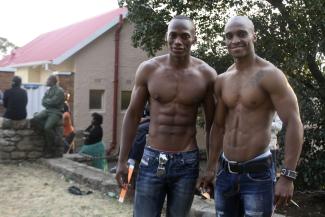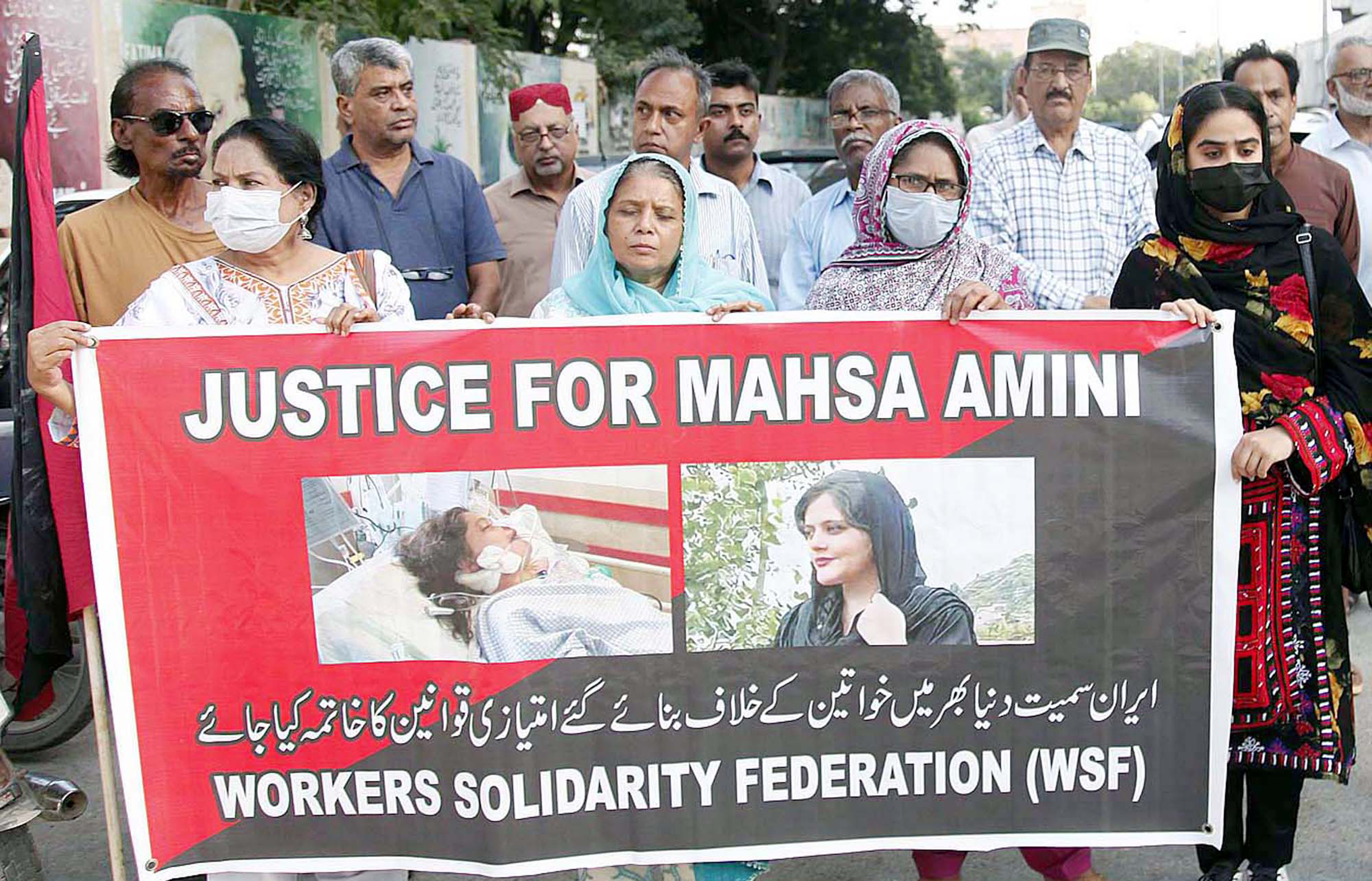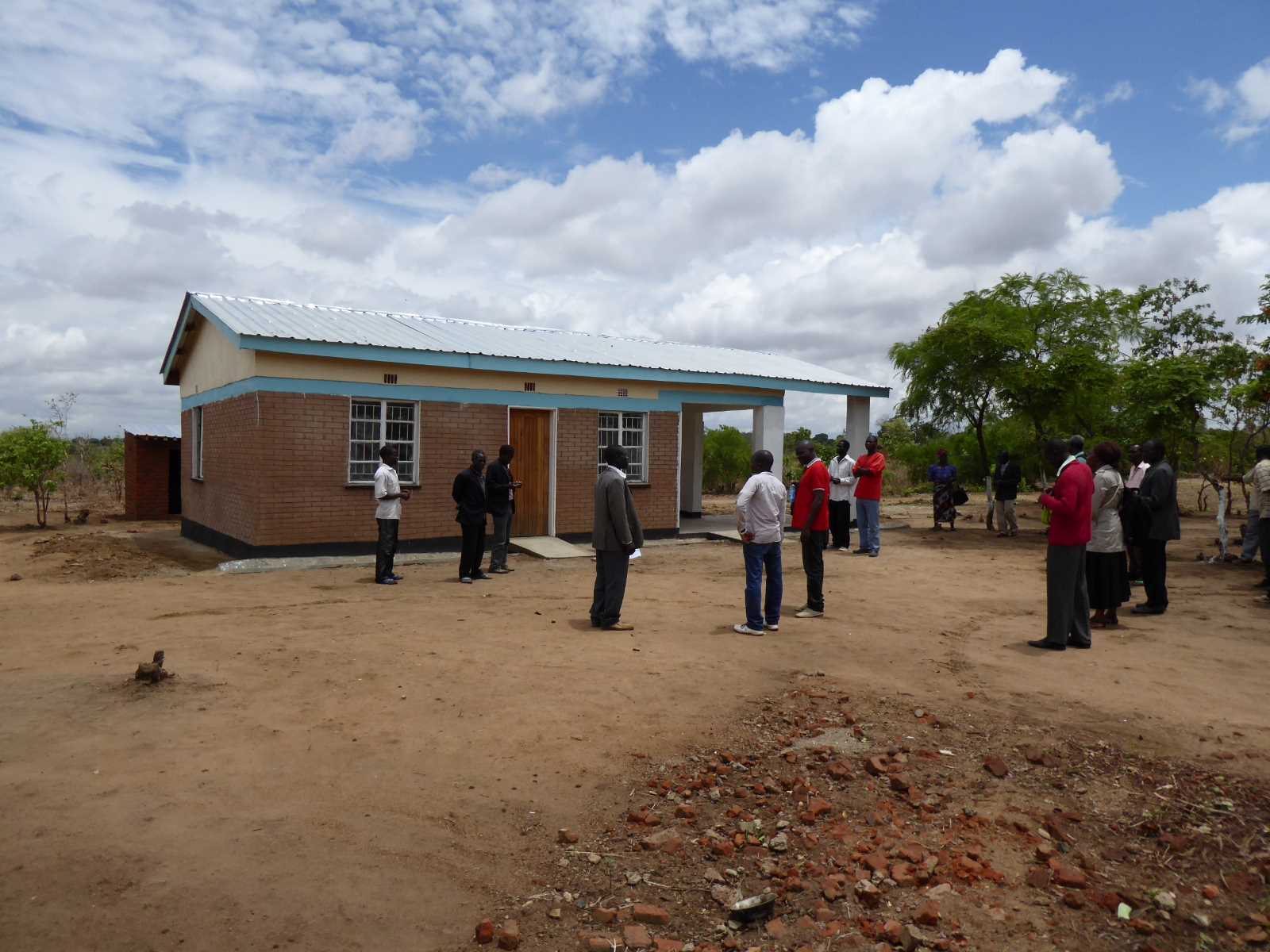Interview
“One cannot shed one’s sexual identity”

The story of Sodom and Gomorrah is in the Bible and in the Qur’an. Many faith leaders say it shows that homosexuality is a sin. Do you agree?
No, I do not think that the Qur’an is against different sexual orientations, and the story of Sodom and Gomorrah is not about sexual orientations. These towns were destroyed because their inhabitants did not observe the rules of hospitality and because some of them were exploiting others, resorting to violence and even homosexual rape. The Qur’an does not say that homosexuality was the reason for their destruction. And why should a person with a different sexual orientation need to hide it? One of the principles of Islam is to be honest. We need to be authentic. Asking people to deny their sexual identity means to deny them the possibility of being authentic. If we lie to ourselves and to one another, we cannot be good Muslims. That is why I came out as a queer Imam at the age of 29.
But in most Muslims’ eyes, the patriarchal, male-dominated family is the only model for gender relations.
The Qur’an is a book from the seventh century. It has to be interpreted against the backdrop of seventh century Arabia. Moreover, the Qur’an is a poetical masterpiece, and what comes with poetry, is many different interpretations. In my eyes, the beauty of the Qur’an lies in its emphasis on healing and mercy. So when someone comes up with a certain story from the Qur’an, the guiding question for interpretations should always be: how does this story serve the best interest of humanity? How does it bring healing? The Qur’an states that God is the most compassionate, the most merciful, and that is how we, as Muslims, must conduct our lives.
When did you discover that you were gay?
I always knew that I was gay. I was different from other boys, and they would call me names. My family, however, was very supportive. My mother was loving and protective, and my father was very tolerant too. I used to knit and crochet with my mother, and he would not mind. But outside the family, in society, I felt a lot of rejection. During puberty, I realised that my sexual attraction is not to the opposite sex, and things became really difficult. I drowned myself in religiosity. I was a pious boy and society was telling me I was going to hell.
Did you try to overcome feeling sexually attracted to persons of your own sex?
Well, I got married to a woman because I was trying to overcome it. There were days of fasting and praying, and I asked Allah to change me. I even went to a spiritual healer. But ultimately I realised that it was necessary to accept myself and be authentic.
Do you remember the moment when you realised: I am okay, I just have to find a way to live my life authentically?
It happened over time. I didn’t wake up one morning and know: “this is it”. The decision to get divorced was important. It was a big thing, because it meant I would be separated from my children. I spent three months fasting, and that experience helped me to reconnect with my creator. I knew I was taking a big step and would face a lot of opposition. Indeed, I lost my teaching job because I came out of the closet. But by then I was totally convinced that I was doing the right thing.
Are you saying that you found your way with the help of Islam, not in spite of Islam?
Yes, that is right. Islam is a system of inclusion, compassion, of an overwhelmingly merciful and forgiving God. If we study the life of the Prophet Muhammad we find a great compassion for humanity. And then you look at how violently some practice Islam today, and you know something has gone terribly wrong.
What do the members of the Inner Circle, the community you serve as Imam in Cape Town, have in common?
Initially, the organisation was meant to support marginalised queer Muslims. For instance, we have celebrated weddings for nine same-sex couples. But in the past three years, we have been joined by other people who realise that patriarchy is a problem. Straight couples have asked me to conduct their weddings. In one case, the woman was Muslim and the man Christian, and other mosques would not marry them unless he embraced Islam first. So I got them married. And there’s been more of that happening. We just finished our annual international retreat with 110 participants. More than half of the participants were straight. That shows that people are interested in an authentic kind of Islam that is emerging from the struggles of queer Muslims and feminists even if they are not queer themselves.
Is your community limited to Cape Town?
Our members are mostly in Cape Town, but for the international retreat, people came from all over South Africa as well as from other countries. Hopefully, more mosques will become inclusive in different parts of the world.
Do you worry about safety?
To be honest, it has never been a big concern for myself, but it is a question for my staff. I have never had any death threats. One reason, I think, is that my approach to the Muslim community it is not confrontational, it’s care-frontational. People know that I have worked in the Muslim community for 20 years, so they can tell that I am neither opposing Islam nor undermining its principles or family structures. What I do is create a space for marginalised souls who want to connect with their creator.
What do you mean by “family structures”?
Well, there is this notion that being gay means to be anti-family, anti-marriage and so on. But that is wrong. My partner and I have adopted a little baby of one year and three months. We are a family; we take care of one another. On the other hand, many straight people have families without fulfilling their family roles – for instance, as good parents. The only real difference between gay and straight people is their sexual orientation.
As an Imam, you work with some key notions. One of them is “sabr”, which is mostly translated as “patience”. What do you associate with this term?
Many verses in the Qur’an mention “sabr”. For me, it is not only about patience, it is also about perseverance. It is about focusing on that connection with your creator, the source of your strength, especially when while you are facing challenges.
The title of your documentary film is “Fitrah”. What does the word mean?
It is complex. You can translate it as “nature”, the way God created you. Whatever you do as a Muslim, it should be in line with your fitrah.
Can you tell us what pushed you to make this film?
Initially, I wanted the film to collect the narratives of queer Muslims and to document their personal struggles. Many people don’t know anything about these things, and prejudice is so common, that I wanted to provide some substantial information. But as things evolved, the film become a documentary that showcases the negotiations that queer Muslims make between religion and sexuality. They often have massive problems. To numb feelings of rejection, for example, there is a lot of alcohol and drug misuse. Others leave the faith because they feel overwhelmed. It is important to point out that people can leave their faith, but one cannot shed one’s sexual identity. There is a serious risk of suicide – I personally know of five cases. The film tackles these issues from the personal, theological and scientific perspectives. It is not something you can watch with your feet up and relax. It is a very engaging documentary. I hope it will start discussions wherever it is screened.
Your discourse focuses a lot on the interpretation of religious texts and conceptions. How about civic rights, human rights?
Well, I think South Africa has one of the greatest constitutions in the world, and one of the greatest democracies, but there is still a lot of work to be done at the grass- roots level. Not all progressive government programmes have trickled down. You still find people who are homophobic, racist, sexist and so on. So my work as an Imam is not just focusing on the soul journey, but also on issues of justice and human dignity. For instance, I was involved in the campaign for the recognition of same-sex partnerships. I went to parliament and delivered our statement on the issue from a Qur’anic perspective. South Africa’s civil union bill was passed in 2006, and that was a very important step.
Questions by Martina Sabra.
Muhsin Hendricks is the first openly gay Imam in South Africa. He is from a Muslim family and studied Islam in Pakistan. For years, he kept his homosexuality secret and even married a woman, whom he later divorced, because he decided to come out. He has started the Inner Circle, an association that gives advice to queer Muslims in Cape Town. His recent documentary film is “Fitrah – Negotiating Islam, sexual orientation and gender identity”.
http://theinnercircle.org.za/
Link:
„Fitrah“ – official trailer:
https://www.youtube.com/watch?feature=player_detailpage&v=c--1DfP4u1s












